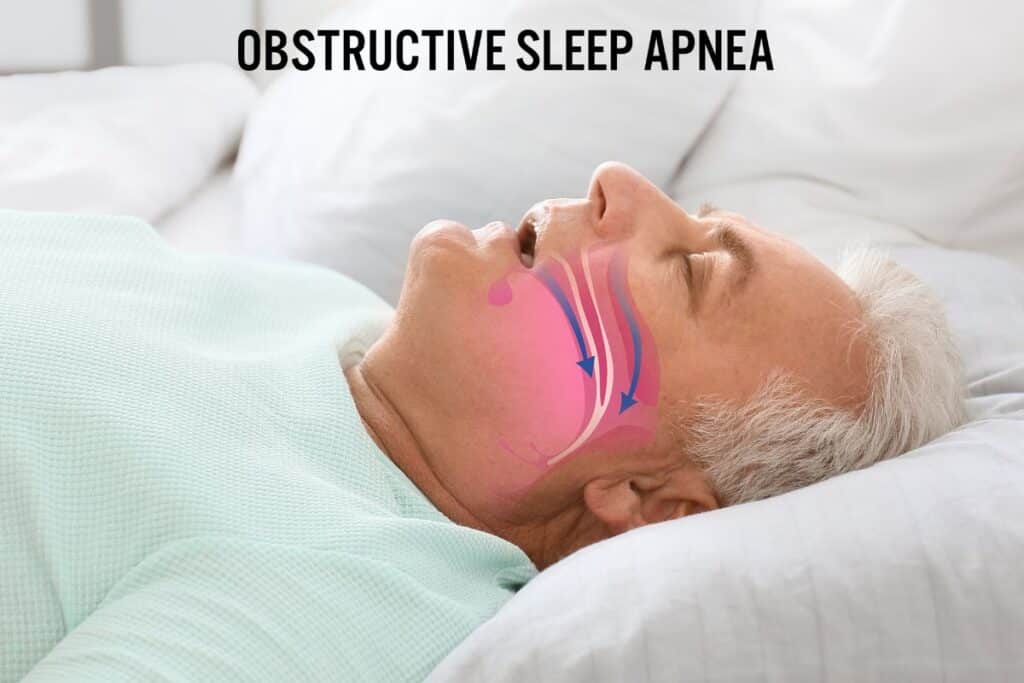Rhinoplasty, or a nose job, is not just a cosmetic procedure. For people in New Jersey with a deviated septum, an issue where the wall inside the nose is crooked, it can also improve how well they breathe, especially at night. A deviated septum can block airways, making it hard to sleep and potentially affecting a person’s well-being.
Dr. Joanna Kam, with her deep experience in performing rhinoplasty, offers valuable insight into how these surgeries can not only make the nose look better but also enhance breathing and sleep. By correcting the septum, patients often experience a boost in their sleep quality.

How Rhinoplasty Can Improve Sleep in New Jersey
- Rhinoplasty can correct deviated septums in New Jersey residents, leading to better breathing at night.
- Improved breathing after rhinoplasty may result in higher-quality sleep and reduced nighttime disruptions.
- Patients in New Jersey considering rhinoplasty for sleep issues should consult with a specialized surgeon to discuss potential outcomes.
- Recovery from rhinoplasty in New Jersey typically involves following the doctor’s advice closely to ensure the best sleep quality improvements.
- After rhinoplasty, many New Jersey patients experience long-term improvement in sleep quality alongside the cosmetic benefits of the surgery.
Impact of Rhinoplasty on Sleep Disorders and Nasal Blockage
Exploring Sleep Apnea
Rhinoplasty can significantly improve sleep apnea by addressing structural problems in the nose, including previous nasal injury and crooked nose. This procedure not only alters the appearance of the nose but also corrects issues like septal deformities and obstructions in the nasal passages, including nasal turbinates. Enhancing the airway allows for smoother airflow through the nasal cavity, reducing symptoms of sleep apnea and associated chronic sinusitis.
Nasal Obstruction in Poor Sleep Quality
By targeting the causes of poor sleep, rhinoplasty alleviates blockages and irregularities within the nasal structure. A part of this procedure, septoplasty, focuses on correcting septal deformities that impact nasal breathing. Restoring nasal function is essential for clear nasal breathing, crucial for effective sleep. This is particularly beneficial for patients with nasal obstruction, helping to ease breathing difficulties.
This operation addresses the nasal septum, reducing nasal congestion and facilitating the free movement of air through the nasal passages, ensuring the nasal airway functions optimally. This leads to fewer sleep disturbances caused by breathing issues. Procedures like nasal valve surgery are employed to solve problems such as nasal valve collapse, which in turn enhances airflow and overall sleep quality.
Rhinoplasty offers a comprehensive solution for individuals whose sleep problems are associated with nasal blockages. By improving nasal breathing and addressing issues like nasal deviation, visible deformity, and nasal congestion, patients achieve better sleep quality and elevated overall health. The procedure also helps in alleviating Sinus infections and related facial pain, enhancing patient comfort and quality of life.
Rhinoplasty Options for Deviated Septums
Surgical Options and Techniques
When it comes to fixing a deviated septum, there are a few surgical options to consider. Each is designed to improve how you breathe through your nose, encompassing both functional procedures and cosmetic nose surgery.
- Septoplasty Procedure: Directly fixes the nasal septum by straightening out the bone and cartilage. This treatment plan is often considered the foundation of correction for nasal asymmetry and functional issues.
- Functional Rhinoplasty: Goes beyond septoplasty by correcting the shape of the nose for better breathing and improving its appearance. It addresses the external nasal valves and the internal nasal septum to enhance airflow. This is often part of a combined procedure that merges aesthetic improvements with functional repairs.
- Closed Rhinoplasty: Involves making incisions inside the nostrils without leaving a visible scarring.
Getting Ready for Your Rhinoplasty to Better Sleep
If you’re considering rhinoplasty to fix a deviated septum, it’s important to start by learning about your nasal anatomy and how nasal deviation affects you. It’s essential to consult with an experienced plastic surgeon, especially a facial plastic surgeon who specializes in septoplasty surgery.
A facial plastic surgeon with a strong background in rhinoplasty procedures can offer detailed information on what to expect. This includes discussing treatment options that are right for your specific condition. When you choose a facial plastic surgeon who has a lot of experience, you reduce the risk of complications.
Make sure to talk about every part of the surgery, including how it’s done and the steps to take after the surgery. This is key to getting the best results and enjoying better sleep.
Recovery and Post-Operative Care for Enhanced Sleep Quality
Recovery time for rhinoplasty varies. It often involves dealing with postoperative pain, attending to cosmetic concerns, and waiting for scarring to become less noticeable. To support the new shape of the nose and promote proper healing, patients might need to wear nasal splints, especially if they have undergone septoplasty to fix septal deformities.
Correcting septal deformities not only improves the appearance but also significantly betters breathing. This leads to improved sleep quality. After surgery, achieving a balanced appearance is crucial for patients’ satisfaction and self-esteem. Additionally, doctors often prescribe prescribed pain medications to manage discomfort and ensure a smoother recovery process.

Considerations for Rhinoplasty Patients
Selecting the Right Surgeon
Choosing the right surgeon for your rhinoplasty in New Jersey is important. Working with an experienced facial plastic surgery specialist is key to high patient satisfaction. This partnership can help meet both aesthetic desires and functional needs, such as fixing septal deformities to better nasal function.
Potential Risks and How to Mitigate Them
Knowing what could go wrong with rhinoplasty is important. While there can be complications, picking a surgeon with the right experience can help reduce risk significantly. Make sure the surgeon is familiar with how nasal surgery can improve sleep quality. It’s also vital to have thorough evaluations of patients to discuss what you hope to achieve and any worries you might have. Following advice for care before and after the surgery is key for a good recovery. It helps to work with surgeons who make it a point to explain the surgical procedure and how it will affect your nose, so you can make the best decision.
Consult with an Experienced Surgeon
Considering rhinoplasty to enhance your sleep, particularly with a deviated septum, means getting advice from a skilled surgeon is important. Dr. Joanna Kam in South Jersey is a skilled facial plastic surgeon with a lot of experience in nasal surgery. She’s an expert in nose jobs and other face surgeries. Dr. Kam listens to what you want and makes a care plan just for you.
To see how nose surgery can improve your sleep and overall health, make an appointment with Dr. Kam. Determining if you are a suitable candidate for the procedure is crucial, as it aims to ensure an enhanced appearance and functional improvement. Dr. Kam’s thorough evaluation will guide you through the benefits and any considerations related to your specific condition.

